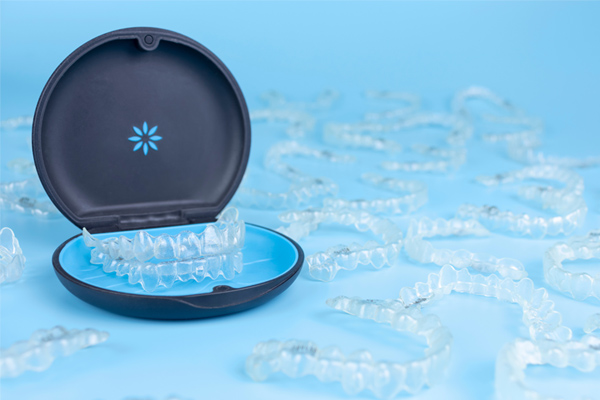 If you are a teenager whose dentist recommends Invisalign to straighten your teeth, you may wonder what the product is. Many dentists advise Invisalign® for teens as a discreet and reliable method of treating crooked teeth. However, you may only be familiar with traditional braces. Invisalign is a different way to fix malocclusions or imperfect positioning of the teeth. Here is some information for you about this type of treatment.
If you are a teenager whose dentist recommends Invisalign to straighten your teeth, you may wonder what the product is. Many dentists advise Invisalign® for teens as a discreet and reliable method of treating crooked teeth. However, you may only be familiar with traditional braces. Invisalign is a different way to fix malocclusions or imperfect positioning of the teeth. Here is some information for you about this type of treatment.
Questions you may have about Invisalign
Teenagers who need to have their teeth straightened may have many questions about the process. You may wonder, for example, why your dentist recommends Invisalign or why you are a candidate for this type of treatment.
Who can use Invisalign treatment?
It may surprise you to know that Invisalign can fix a range of issues, from minor straightening to bigger problems. Some treatable problems include:
- Gaps between teeth
- Underbite
- Overbite
- Crossbite
- Open bite
- Overcrowding
Dentists who recommend Invisalign for teens understand that the method can help many people fix their orthodontic issues.
Why do people choose Invisalign?
Invisalign is a choice that allows some flexibility during treatment. You can remove your custom aligners for up to a couple of hours each day while eating, playing sports, brushing, or flossing.
The aligners are clear, making them a discreet choice for teeth straightening. Some people may never notice that you are wearing them.
Invisalign can make it easier to clean your teeth than braces. You can brush and floss without having to get around brackets and wires that stay in place through treatment. Also, some patients find Invisalign's material to be more comfortable to wear than traditional braces.
When do you wear the aligners?
In most cases, you will need to wear your aligners for 20-22 hours per day for the desired results. Your aligners may have blue compliance indicators to assure your parents you are wearing them for enough time.
How does Invisalign straighten your teeth?
After a scan of your teeth, your custom aligners are made. You wear each set for one to two weeks, then upgrade to another set. With each set of aligners, your teeth get a little straighter. You will have checkups every six to eight weeks to make sure your treatment is progressing. You can also pick up a new batch of aligners at your appointment.
How long will your Invisalign treatment last?
Each patient is different. Your treatment plan is unique to your needs. You will start noticing results in just a few weeks, but your treatment will probably last for months. After you reach your goal, a retainer can help you keep your smile intact.
Are the aligners uncomfortable?
It is entirely normal to feel some pressure or discomfort when you begin wearing a new set of aligners. That is because they are helping your teeth move into the correct position. As the teeth shift, you will feel less pressure.
Conclusion
Your dentist recommends Invisalign for teens because it can be a good treatment option for many patients. Be sure to ask your dentist any questions before and during your treatment. With Invisalign, you can have a beautiful smile for life.
Request an appointment or call McCarthy Dentistry at 740-546-5178 for an appointment in our Marietta office.
Recent Posts
Invisalign® for Teens is a viable option for some dental patients but not all. Your child's dentist will consider certain factors, such as how crooked the child's teeth are. If your teenager is a candidate for Invisalign, you can weigh the pros and cons of aligners and traditional braces to decide which works with your…
Many families with adolescents in need of straighter smiles are opting for Invisalign® for teens over traditional braces. Braces use wires and frequent adjustments to straighten each tooth individually. Invisalign clear aligners straighten all the teeth at once and are swapped out for new ones about every two weeks during the process. These aligners are…
A general dentist is often the first to inform parents that a teenage patient needs braces. As an orthodontic option, Invisalign® for teens can produce results in just a few months with minimal discomfort. This process can work to straighten teeth that are out of line, crooked, or twisted, and there may be no need…


